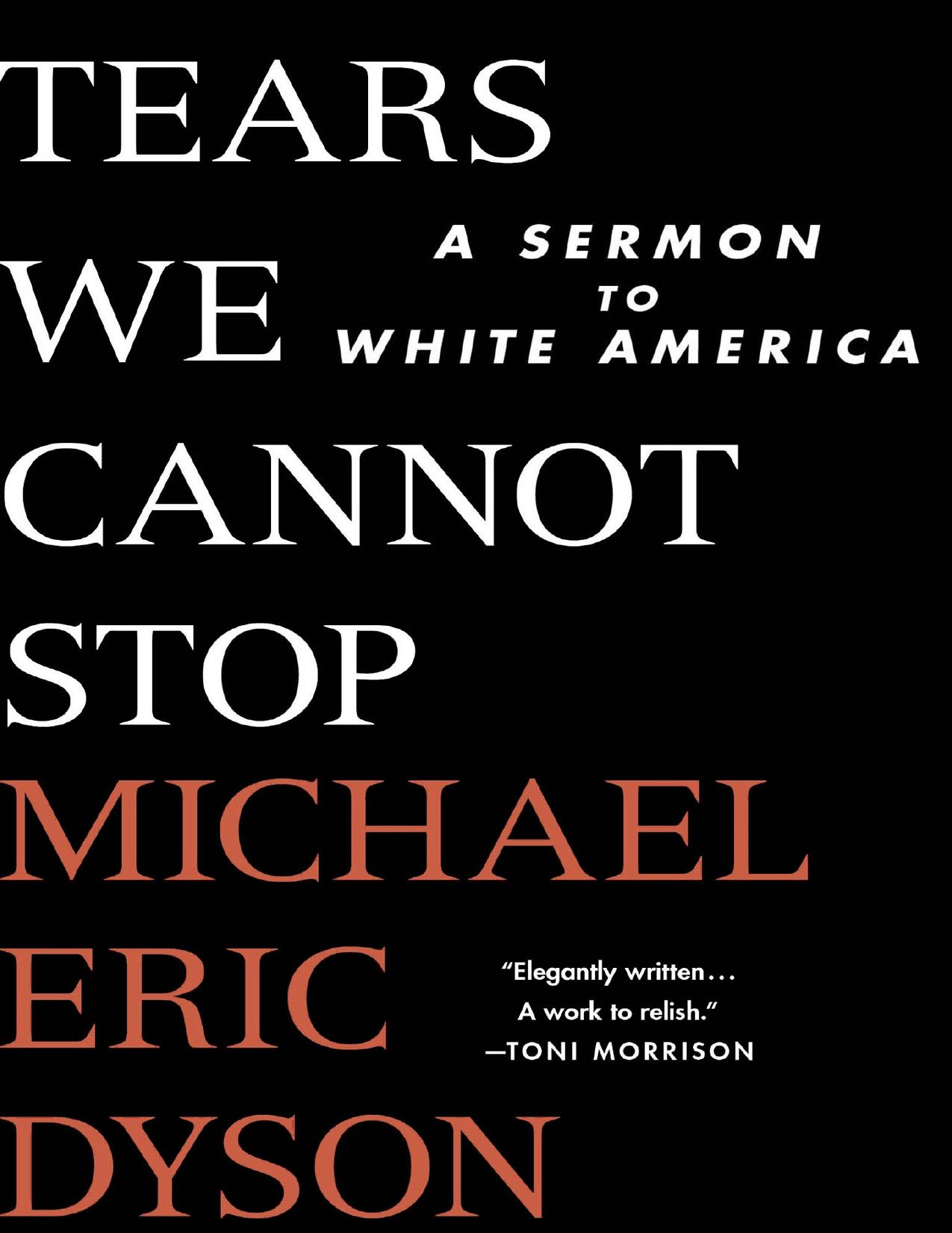Tears We Cannot Stop by Michael Eric Dyson

Author:Michael Eric Dyson
Language: eng
Format: epub, pdf
Publisher: St. Martin's Press
Published: 2016-12-04T16:00:00+00:00
Being Black in America
4.
Nigger
Admit it, beloved, that word—that abomination—is still with us.
Yes, it’s ugly. Yes, it’s vile. Yes, it’s full of hate.
And yet, a lot of you, or at least a lot of the folk you know, still think of black folk as niggers.
I remember the first time I heard the white world call me “nigger.”
I say white world because it was not an individual man saying that to me, mind you, even though the words came from his mouth. This man was simply repeating what he had been told about me. I was every black person he’d ever meet. We were all the same. That’s what nigger meant. That’s what it still means.
It was 1965. I was seven years old. We and family friends were down south for a monthlong visit with our kinfolk. On that day I drove with our friends to see other relatives who lived hours away. In the backseat of the car my friend Johnny and I behaved like typical kids. We had quickly plowed through our brown paper bags of bologna sandwiches and our Mason jars of Kool-Aid. Soon our stomachs started to groan in hunger. A shiny diner appeared up ahead and we begged Johnny’s parents to stop. Looking back I’m not quite sure what made them ignore their sense of the likely reaction we’d all face. I think the cumulative indignities of racism had finally got to them. It was absurd not to be able to eat the same food at the same time in the same place with white folk. I think they just momentarily snapped. Well at least his mother did. His father knew all too well the price he might pay for offending the white world with something as simple as his voice. His pleasing baritone was a threat to the tenor of the times. That’s why he stayed behind in the car, while Johnny and I and his mother took a chance that just this one time some white person might be kind enough to treat us like human beings.
“We don’t serve niggers here.”
He didn’t yell. His eyes were cold but his words were dry and matter-of-fact. He spoke them the way you might tell someone they’d reached a wrong number. But for me they altered the shape of my universe.
Even if we were “good niggers,” we were still niggers. (That is why, when I preach, I can never say “good Samaritan,” as though the distinction between a good and bad Samaritan, like the one between a good and bad nigger, rests on anything except what the larger world deems good, that is, subservient.) The strength of the adjective had no way of modifying the vulnerability of the noun. Blackness could never be good in a way that could help black folk because a nigger could never be of any service to himself if he were busy living down to expectations. It was a wash from the start. If you accepted the term nigger, no speech or grammar could rescue you.
Download
This site does not store any files on its server. We only index and link to content provided by other sites. Please contact the content providers to delete copyright contents if any and email us, we'll remove relevant links or contents immediately.
The Secret History by Donna Tartt(19085)
The Social Justice Warrior Handbook by Lisa De Pasquale(12190)
Thirteen Reasons Why by Jay Asher(8907)
This Is How You Lose Her by Junot Diaz(6885)
Weapons of Math Destruction by Cathy O'Neil(6279)
Zero to One by Peter Thiel(5801)
Beartown by Fredrik Backman(5751)
The Myth of the Strong Leader by Archie Brown(5507)
The Fire Next Time by James Baldwin(5442)
How Democracies Die by Steven Levitsky & Daniel Ziblatt(5218)
Promise Me, Dad by Joe Biden(5153)
Stone's Rules by Roger Stone(5087)
A Higher Loyalty: Truth, Lies, and Leadership by James Comey(4960)
100 Deadly Skills by Clint Emerson(4924)
Rise and Kill First by Ronen Bergman(4788)
Secrecy World by Jake Bernstein(4752)
The David Icke Guide to the Global Conspiracy (and how to end it) by David Icke(4717)
The Farm by Tom Rob Smith(4507)
The Doomsday Machine by Daniel Ellsberg(4490)
